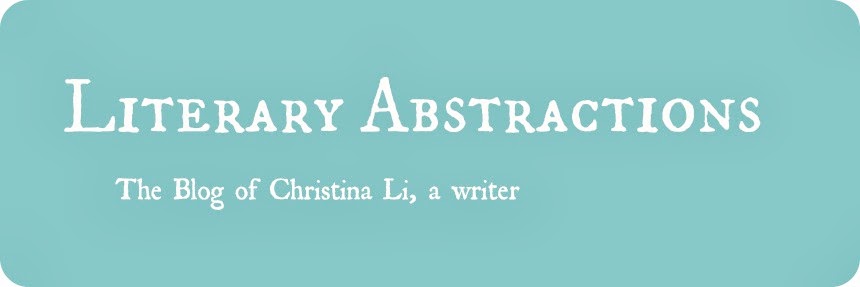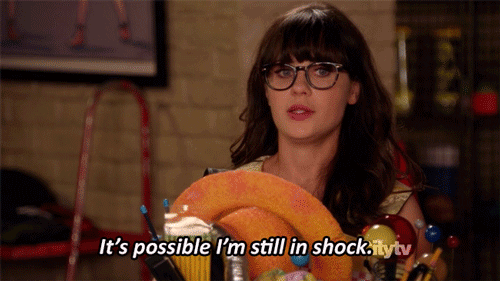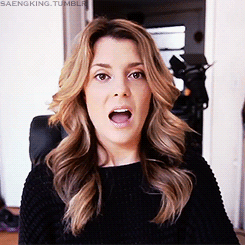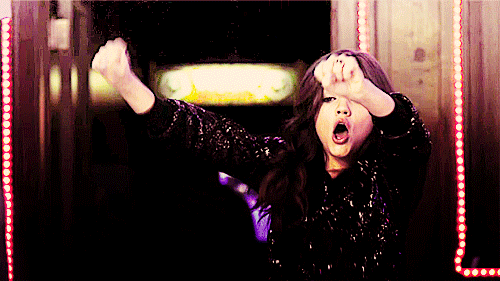I've read countless "How I Got My Agent" blog posts in the past, and yet, when I sit down to attempt to write mine, I totally blank out. Am I really at this step? Have I really made it this far?
I just pinched myself.
Long story short: I'm now represented by Jessica Regel from Foundry + Media!!!
Long story long:
I began writing this manuscript I informally called TeaNovel back in 2012, and you can follow its journey through the archives of this blog. It was a NaNoWriMo novel (National Novel Writing Month), meaning that it was a sucky first draft dashed out in the confines of 30 days. But to me, it was such a big and crazy idea that the only way I could have gotten the first words down was through something equally big and crazy as NaNo.
I had written two finished manuscripts before I wrote TeaNovel, and while I liked those novels and thought they improved my writing immensely, I always gave up after the first draft. I knew I didn't believe in them enough to revise them. They weren't ready. TeaNovel was different--maybe it was because I wrote about a story and a world that was so close to me. But it, too, wasn't ready: I knew that much.
So I decided to make it ready. I decided that at some point, when TeaNovel was ready, I wanted an agent to represent it.
It was a difficult novel to revise. I went through about six or seven rewrites before querying, starting almost entirely from scratch each time. I visited websites like PubCrawl and Susan Dennard's blog weekly. I would finish a rewrite or a major overhaul, and know that I was much closer to my vision of the story, but the MS wouldn't be quite there yet. I had to acquire multiple writing skills through my development of TeaNovel. It was, in every sense of the word, a challenge.
In the beginning of 2014, I thought it was ready to send out. I began querying. Requests began to trickle in, as did rejections. I had a mini heart attack every time I saw
Inbox(1). (Seriously, the waiting is the WORST). I got more rejections. Full requests turned into rejections.
Every time I came across a rejection from a requested full, I got a sinking feeling as I read through the comments. The thing is? 98% of those comments were absolutely right. The manuscript was not quite there. Storylines weren't connected. The writing was choppy at times.
I got one of the nicest, most helpful rejection letters ever from a rockstar agent, and after compiling the other rejections and discussing it with my CPs, I knew, in my gut, that this version of TeaNovel was not
true.
So I started thinking. And brainstorming.
Meanwhile, in the summer of 2014, I went to a Writer's Digest conference. I signed up for the Pitch Slam, this event in which writers go around a ballroom to give 90-second pitches to agents and said agents possess the crazy stamina to basically sit through a 3-hour pitch session with maybe like 3 bathroom breaks. Jess was the first agent I pitched to--I had always kept her in my periphery for my query list, because she happened to represent one of my favorite MG authors of all time* along with a ton of super cool YA, but I'd always held off from querying her, because I wasn't sure if my novel was too quiet for her tastes.
Somehow at the conference, I'd screwed up the courage to approach her with my pitch. I was terrified. Maybe I stammered. Somehow, I still was able to speak English. Jess asked a few questions about the setting, and then asked for the full manuscript.
At which point I thought,
no way am I sending a half-assed manuscript, and then I was like, "Um...I'm kind of revising it?"
She was super gracious and requested to see it when I was done with revisions. And then let's just say I burrowed into a hole and didn't know how to think for a few months. Or something like that.
I started my final revision of TeaNovel in January 2015. I kept the backbone of the plot and the characters, but I ripped out each scene and rewrote it until it was exactly the way I wanted it to be. I sketched out character arcs and strengthened relationships. I asked myself questions of why and how each character would fight for everything to get what he or she truly wanted, and wrote the answers between the lines of my MS. I rewrote a world that I loved. I listened to Lana del Rey on repeat and my friends probably secretly judged my Spotify playlists.
I finished the draft. I sent it to a CP, and she agreed with me that it was ready.
I began re-querying in late May. I did my research and kept the query list small; I did my research, because I wanted to get it right this time. I sent a long-overdue manuscript to Jess, praying that she hadn't forgotten me. And two weeks later, when I got my first email from an agent asking to discuss my manuscript, I started laughing hysterically in the middle of an English class discussion.
I was absolutely nervous for my first call. My hands were shaking. I had a whole list of questions prepped out. We talked about revision notes and she was super kind. And then halfway through the call, she offered!!!
And then came the crazy.
I notified the other agents who had my MS. Within a few days, Jess Regel, who, AGAIN, represented one of my favorite MG authors of all time*, wanted to speak to me.
I was freaking out up until the second she called, and then I managed to get my shit together. (I'm totally lying. I think I was still flipping out all through the convo, and Jess was just this wonderfully nice presence on the other end of the phone listening to me ramble.) Somehow, talking with Jess put me at some sort of ease. We discussed the manuscript, and I found myself agreeing to everything she said. It was surreal, and it was magical, and I was a happy lolcat on cloud nine.
By the end of the week I had three offers, and I had to make a decision by Monday. And it was very, very difficult. Dahlia Adler wrote
this post about this agonizing process, and I couldn't agree with her more. After a year of rejections and waiting, I kind of resigned into this mindset that no one really liked my book, and I would be lucky to get a full request. And then to have the switch flipped, and to have three awesomesauce agents offering on me?
I was totally unprepared for that part of the process. I spoke with the agents' clients, who were all lovely and wonderful, and took a whole legal pad of notes. My brain went into overdrive. I basically didn't eat for the entire weekend. Or sleep.
I was still heavily deliberating through Sunday night, but all along there was this tiny gut feeling about Jess, and sometimes, all things considered, that's really what you can go on. As Monday approached, I became more and more sure that Jess was the right agent for me. And so I ended up accepting her offer of representation!!!
So yeah! After more than a year of querying, I signed with the incredible Jess Regel, with a novel that I loved very much Multiple happy dances ensued.
...I HAVE AN AGENT!!!!!
*the lovely Adrienne Kress, whose novel Alex and the Ironic Gentlemen is still one of my favorite books ever.











